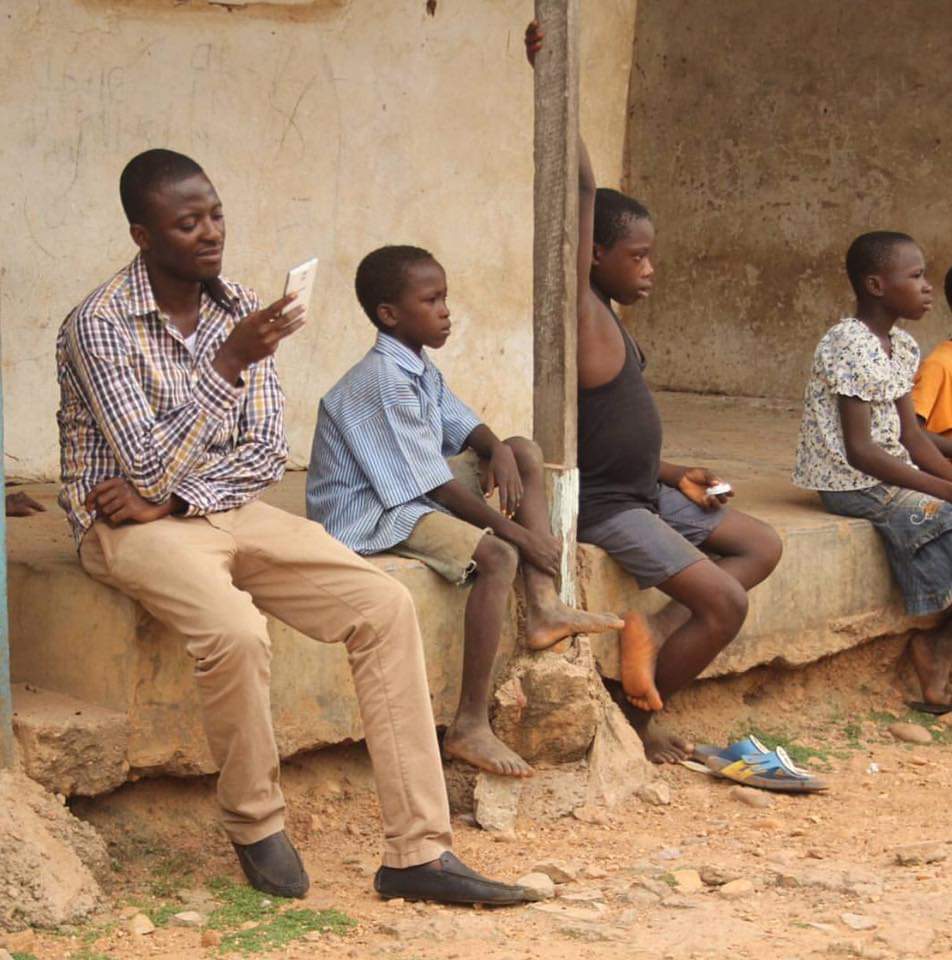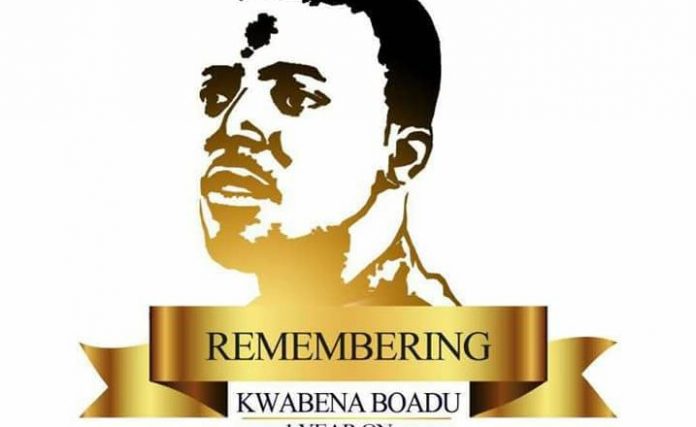|
Getting your Trinity Audio player ready...
|
“What’s your favorite genre of music?” my host asked, even as he readied two fingers to adjust the settings of his car’s audio system in response to whichever answer that came.
That evening in December 2014 was my first time meeting Kwabena Boadu, after months spent interacting on social media; neither of us knew it then, but it would be our last.
At the time, I schooled in Kintampo, central Ghana, and had just turned 22. This was the period in my life when, if I had died, my only mourners would be family, a couple of friends, and schoolmates — I was that irrelevant, yes. To the guy seated next to me in a blue Honda around Asylum Down on that fateful day, though, I wasn’t.
See, I was occupied with academics only by day; at night, I’d put hours into building a career in sports-writing that had begun only a couple of years prior with the Ghanaian edition of the world’s biggest football website. Even so, I didn’t seem to be making much headway — still don’t, really — until I found Kwabena.
Or, rather, until Kwabena found me.
I’m not too sure of the circumstances, but I think this bright right-hand man of Dr. Mahamudu Bawumia — then running mate, but now vice-president, to Nana Addo Dankwa Akufo-Addo of the New Patriotic Party (NPP) — read one of my horrible little write-ups online. Somehow, he was moved to get in touch, and he did — on Facebook.

Ah, of course, Zuckerberg’s Facebook: Kwabena’s playground. There he did his best work — on football and on politics, serious and humorous. For one who kept such high-class company — by virtue of his job — Kwabena did keep a ridiculously low profile. He reared up every now and then to cause ‘mischief’ on his favorite social networking platform — just enough to keep you coming back to seek his next post, yet to figure out exactly what this brilliant young man did for a living, you’d have to ask around. And maybe — just maybe — you wouldn’t be too surprised on finding out, as I was.
Kwabena’s wall buzzed with activity, his brain with ideas, but it was from his heart — so human that it hurt — that his finest traits sprung, and those who associated with him daily appreciated it best.
“Very humble,” says Clara Napaga Tia Sulemana, a presidential staffer, of her former colleague. “He was ready to listen to anyone who came his way, going the extra mile to provide assistance sought.”
Such selflessness was a stand-out facet of Kwabena’s personality that Krobea Kwabena Asante — another friend, comrade, and namesake — further underlines in his own recollections, comparing him to the Biblical John the Baptist in the way he “opened up opportunities for others.”

This I know, and to this I testify.
See, on the occasion referred to at the outset, Kwabena had invited me to Accra from my base in the Brong Ahafo Region for an encounter with a high-ranking Ghanaian football administrator that would never have made it into my wildest dreams — and I dream [wildly] a lot. As it happened, this obviously busy person — name withheld — we needed to chase all over the place had a lot of meetings scheduled that evening, and we finally cornered him in one of Accra’s poshest hotels around 9:00 p.m.
Why, though, was this distinguished fellow so keen on honoring an appointment with me, a second-year nursing student and fledgling football writer who had never even conducted an interview face-to-face?
Well, it was apparently because, a little over a week earlier, Kwabena had told him a lie; a sweet little lie that, when he repeated even in my presence, was as embarrassing as it was flattering.
“Boss, this guy eh, he’s the best writer in Ghana, I tell you.”
And, just like that, Kwabena set the tone for the rest of the evening that I struggled to keep up with. Nerves gnawed at my confidence throughout that late-night session, but Kwabena reassured me afterwards: said I’d aced it, even though it hardly felt like I had. In all sincerity, he — not me — was the real star. A first impression lasts just as long as the last, and Kwabena rolled both so effortlessly into that rare meeting of ours.

Kent Mensah, a reputed Ghanaian journalist, is another who recalls with fondness the very first time he met Kwabena, even though the pair had many more personal dealings as they grew to become long-time acquaintances.
“I still remember when he first walked into my office at Citi FM — where I was then Online Editor — to introduce himself as Dr. Bawumia’s press aide,” Mensah says.
As time went on, however, Mensah found Kwabena to be worth much more than the office he held.
“He was pleasantly simple, respectful -– towards opponents and his party people — and accommodating, full of wit, and abounding in positive energy.”
In the dirty — often muddy — waters of Ghanaian partisan politics, those qualities are certainly necessary for one to navigate the many controversies and attacks that emerge from outside and within one’s own ranks. In doing so, Kwabena proved a shrewd sailor who got his bearings right and firmly charted the path of least resistance. Armed with level-headedness — that weapon so very few politicians in Ghana seem to possess – he marched on even in the face of crisis and disappointment.

“In the heat of big problems, he kept calm and tried to provide solutions,” Asante, mentioned earlier, says, and Sulemana concurs — even sharing an example to illustrate that observation.
“In August 2013, hours before the election petition ruling was delivered, Kwabena came to my house and told me point-blank that we had lost, thus the need to prepare for the next campaign.
“It was only a gut feeling — albeit one that played out just that way eventually — but that he had accepted the ‘verdict’ so readily before it was even declared had me completely stunned.”
That calmness, Sulemana asserts, was an asset the ruling NPP could certainly have done with after finally landing power, given some of the challenges the government has struggled with in the three years that have followed.
“A lot of young people who are agitated today because they feel their expectations have not been met would have been calmed by the way Kwabena related to them and handled such delicate issues, or — even better — he would have put up a good fight for their cause.”
Mensah, from a different angle, tells of yet another area where Kwabena could have been a valuable resource to the administration, especially with his mentor Dr. Bawumia so often the target of the opposition’s barbs.
“Kwabena was always ahead of issues and would surely have pre-empted a lot of the propaganda slung at his boss, finding solutions to them long before they even became public,” he explains.
But for Kwabena’s demise on the campaign trail – barely three weeks after he turned 30 and a fortnight to the elections he had so boldly urged Sulemana to lace her boots for — all of such predictions would probably have proven true. Alas, the NPP won’t have Kwabena’s warm persona to thaw icy matters, and Bawumia continues to mourn the loss of a man he describes as his “rock,” a trusted armor-bearer who adroitly wielded his pen as both sword and shield.
In a sense, though, it feels like nothing has been lost at all, for it wasn’t as if Kwabena ever held anything back from anyone he dealt with personally or professionally. Midas had the golden touch, but Kwabena’s was the golden heart, sprinkling a bit of glitter on all he met.
This I know, and to this I testify.
I still don’t recall just what response I gave to his inquiry about my musical tastes that day. But whatever it was — or wasn’t – that very question summed up what he always stood for: others.
NY Frimpong — Daily Mail GH





